Written by Dr. Emily R. Thornton, PhD, LCADC , Last Updated: November 7, 2025
California substance abuse counselors must earn certification through CAADE, CADTP, or CCAPP. Requirements include 315 education hours, 2,000-3,000 supervised clinical hours, and passing a certification exam. The process takes 2-4 years, depending on your pathway. As of 2024, California substance abuse counselors earn a median salary of $61,310, with entry-level counselors starting around $44,190 and experienced professionals earning up to $118,970 annually.
Table of Contents
- California Certification Overview
- Comparing CAADE, CADTP, and CCAPP
- Which Certification Path Is Right for Me?
- Four Steps to Becoming Certified
- Cost and Return on Investment
- Online, Campus, or Hybrid Options
- Timeline and What to Expect
- Advanced Certification Options
- Substance Abuse Counselor Jobs in California
- Substance Abuse Counselor Salary in California
- California Degree and Certificate Programs
- Frequently Asked Questions
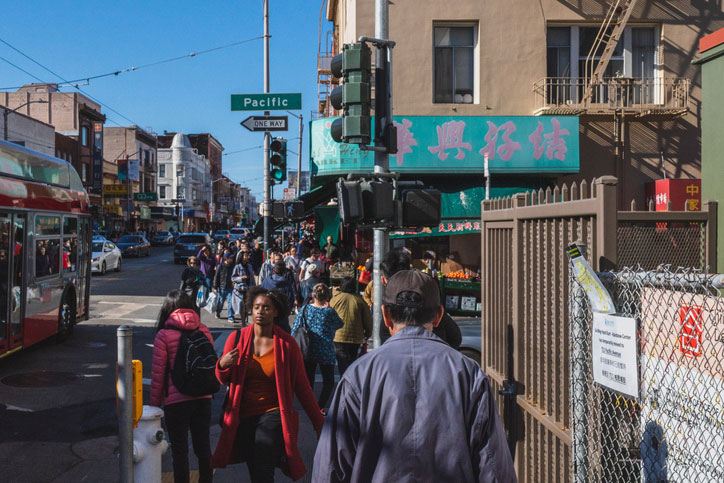
California is facing a drug crisis that demands compassionate, well-trained professionals. Behind the state's reputation for wealth and innovation lies a stark reality: in just five years, overdose deaths from fentanyl have jumped more than 2,100%, according to the California Department of Public Health.
But California has never lacked compassion or resources. From city caseworkers securing treatment and housing to organizations like the Glide Foundation offering clean needles and hot meals, the response is robust. At the center of this effort are substance abuse counselors, making profound changes in the lives touched by addiction.
If you're ready to be part of the solution, California offers clear pathways to certification. Whether you're starting fresh or building on existing education, this guide breaks down everything you need to know to launch your career as a substance abuse counselor in the Golden State.
California Certification Overview
The California Department of Health Care Services, Substance Use Disorders Compliance Division (DHCS-SUDCD) doesn't certify substance abuse counselors directly. Instead, DHCS requires anyone providing counseling services in a state-certified drug or alcohol program to earn certification through one of three recognized organizations.
Each organization offers multiple credential levels, from entry-level technicians to doctoral-level supervisors. This guide focuses on accessible certificate-level counselor credentials that serve as the standard entry point for career-focused counselors in California.
The three certifying organizations and their certificate-level credentials:
- California Association for Alcohol and Drug Educators (CAADE) of the Addiction Counselor Certification Board of America (ACCBC) — offers the Certified Addiction Treatment Counselor I (CATC I)
- California Association of DUI Treatment Programs (CADTP) — provides the Substance Use Disorder Certified Counselor (SUDCC)
- California Consortium of Addiction Programs and Professionals (CCAPP) — provides the Certified Alcohol Drug Counselor I (CADC I)
All three credentials meet California's requirements and provide a scope of practice that includes chemical dependency assessment, diagnosis, and treatment with minimal oversight.
Looking for Guidance on Another Credential?
Do you already hold an associate, bachelor's, or master's degree in a human services or behavioral science field? Or perhaps you're interested in a technician credential that doesn't require a degree.
If you're looking for a different level of certification in California, we have you covered. See our other credentialing guides:
Comparing CAADE, CADTP, and CCAPP
While all three organizations meet California's requirements, they differ slightly in their specific requirements and processes. Here's a side-by-side comparison to help you understand your options.
| Requirement | CAADE (CATC I) | CADTP (SUDCC) | CCAPP (CADC I) |
|---|---|---|---|
| Education Hours | 315 hours AOD/ADS/SUD | 315 hours AOD/ADS/SUD | 315 hours AOD/ADS/SUD |
| Internship Hours | 250 hours minimum | 250 hours minimum | 255 hours minimum |
| Clinical Experience | 2,240 hours supervised | 2,080 hours supervised | 2,080 hours (with associate+) or 3,000 hours (certificate only) |
| Exam | CATC Exam (70% passing) | IC&RC ADC Exam (500/800) | IC&RC ADC Exam (500/800) |
| Certification Window | 5 years from registration | 5 years from registration | 5 years from registration |
| Renewal Period | Biannual (every 2 years) | Biannual (every 2 years) | Biannual (every 2 years) |
| CEUs for Renewal | 40 hours | 40 hours | 50 hours |
Which Certification Path Is Right for Me?
Since all three certifying organizations meet California's requirements, your choice often comes down to practical factors. Here's how to decide which pathway best fits your situation.
Choose CAADE if:
- Your school's program is CAADE-accredited (check their approved programs list)
- You prefer taking the CATC exam instead of the IC&RC exam
- You want access to CAADE's Education Equivalency process for non-approved programs
- You're planning to pursue advanced CATC credentials (II through V)
Choose CADTP if:
- You're interested in a DUI treatment program specialization
- Your employer or intended workplace uses CADTP credentials
- You want slightly fewer clinical hours (2,080 vs. 2,240)
- You prefer the IC&RC exam format
Choose CCAPP if:
- You have (or will earn) an associate degree or higher in behavioral science
- You want to save 920 clinical hours with a degree (2,080 vs. 3,000)
- Your school offers a CCAPP-approved program
- You're interested in CCAPP's extensive continuing education offerings
Bottom line: All three credentials are equally valid in California. Check which organization your preferred school partners with, talk to counselors in your area about which credential they hold, and consider which exam format you prefer. You can't make a wrong choice here.
Four Steps to Becoming Certified
No matter which certifying organization you choose, the certification path follows the same basic structure. Here's what you need to do.
Step 1: Complete an AOD/ADS/SUD Certificate or Degree Program
Step 2: Register with Your Chosen Certifying Organization
Step 3: Satisfy Supervised Clinical Experience Requirements
Step 4: Pass Your Certification Exam
Let's break down each step so you know exactly what to expect.
Step 1: Complete an Alcohol and Drug Studies/Addiction Studies/Substance Use Disorder (AOD/ADS/SUD) certificate or degree program from an approved school
All three certifying bodies require a minimum of 315 hours of AOD/ADS/SUD education from an approved school or program. The good news? California offers dozens of options, from community college certificates to advanced degrees.
Programs approved by all three certifying bodies are offered through community colleges, four-year state colleges, and private universities. You'll find nearly as many programs resulting in bachelor's and advanced degrees as those that award certificates of achievement and associate degrees.
The program and school you choose primarily come down to how much college you've already completed. A certificate or associate degree is the standard for earning the credentials discussed here and getting started in the field. But if you already have an associate degree, you can pursue a bachelor's completion program. And if you have a bachelor's, master's programs are available.
Regardless of which type of program you choose, you'll need to complete an internship or practicum in addition to the 315 hours of classroom education. CADTP and CAADE require an internship of at least 250 hours as part of your education, while CCAPP requires at least 255 hours.
Finding approved programs:
- CAADE maintains a list of CAADE-accredited programs, including community college certificates and bachelor's/master's programs. They also offer an Education Equivalency process if you didn't complete a CAADE-approved program.
- CADTP accepts most addiction counseling programs through accredited colleges and maintains a list of SUD providers.
- CCAPP maintains a list of CCAPP-approved programs. Note: If you earn a minimum of an associate degree in behavioral science or an allied mental health profession, you'll need 920 fewer experience hours for certification.
Step 2: Register with the CAADE, CADTP, or CCAPP
Before you can begin the certification process, you must register with one of the certifying organizations. Registration starts the certification clock, giving you five years to complete all education, exam, and experience requirements.
You must be registered before you can begin interning and accumulating pre-certification experience hours at a DHCS-certified program. You'll need to register annually while working toward certification and document your progress.
You don't need to wait until you finish your education to register, but keep in mind that once you're registered, the five-year countdown begins. Plan accordingly to ensure you can complete all requirements within that window.
All three certifying organizations require the completion of a nine-hour orientation course before you can register. This includes three hours of ethics, three hours of professional boundaries, and three hours of confidentiality training. If you're already in or have completed your education program, you may have already met this requirement. If not, you can take the course through online providers.
Registration options by organization:
CAADE offers three registration types:
- Student registration if you're currently enrolled or have completed an AOD/ADS program
- Individual registration if you didn't complete a CAADE-approved program but want to qualify through the Education Equivalency process
- Intern registration if you've already taken and passed the CATC exam
CADTP offers one registration type:
- Substance Use Disorder Registered Counselor (SUDRC), as you work toward meeting all certification requirements
CCAPP offers one registration type:
- Registered Alcohol and Drug Technician I (RADT-I) as you work toward meeting all certification requirements
Step 3: Satisfy Your Agency's Supervised Clinical Experience Requirements
Once you're registered and have completed your education, you're ready to start logging clinical experience hours. The practicum or fieldwork hours you completed during school count toward your total, provided you were registered when you completed them.
This is where the three organizations differ most significantly in their requirements:
- CAADE requires 2,240 hours of supervised clinical experience in a DHCS licensed or certified facility. Only hours spent providing AOD counseling services qualify. Your supervisor must verify all dates on the ACCBC Summary of Hours form.
- CADTP requires 2,080 hours of SUD counseling work experience. An authorizing agent must sign a SUD Counseling Work Experience form verifying your hours.
- CCAPP requires 2,080 hours if you've earned an associate degree or higher in behavioral science or allied mental health, or 3,000 hours with just a certificate of completion.
Step 4: Pass the Exam Recognized by Your Agency and Become Certified
All three certifying organizations require passing an exam to become certified. Here's what to expect for each.
CAADE: The CATC Exam
CAADE has its own exam. Before taking it, complete an Exam Eligibility Application. Once approved, you'll receive an Exam Approval Letter from the ACCBC with instructions for registering at a PSI testing center near you. PSI has nearly 80 testing sites throughout California.
You need a passing score of at least 70 percent to qualify for CATC I certification. Find the Exam Eligibility Application and exam preparation materials on the ACCBC website.
After passing the CATC exam, complete the Initial CATC I Certification Application and submit it with all required documents: education transcripts, passing exam score report, proof of clinical work experience, and three letters of recommendation.
CADTP and CCAPP: The IC&RC ADC Exam
Both CADTP and CCAPP use the International Certification & Reciprocity Consortium (IC&RC) Examination for Alcohol and Drug Counselors.
The ADC Exam is a computer-based test of 150 multiple-choice questions administered through ISO-Quality Testing Inc. You'll have three hours to complete it and receive a preliminary score immediately afterward. The score range is 200-800, with 500 being a passing score.
CADTP certification process:
Complete the Exam Certification Application and provide transcripts and documentation of your education and experience. Processing takes up to eight weeks. Once approved, you'll receive email instructions for scheduling your exam. After passing and paying all fees, you'll automatically receive your SUDCC certificate. Find exam prep materials on the CADTP website.
CCAPP certification process:
Complete the CADC I application through Certemy, their online portal. The CADC I A application is for those with a minimum of an associate degree. The CADC I B application is for those who meet the requirements through a certificate.
After your application and portfolio review (six to eight weeks), you'll receive an email notification of pre-registration for the IC&RC ADC exam, followed by instructions from ISO-Quality Testing for scheduling. Once you pass, you'll receive your certificate within four to six weeks.
Cost and Return on Investment
Understanding the financial investment required for certification helps you plan effectively and assess your return on investment.
Typical Costs to Expect
| Expense Category | Estimated Cost Range |
|---|---|
| Certificate Program Tuition | $2,000 - $8,000 |
| Associate Degree Tuition (Community College) | $1,500 - $5,000 total |
| 9-Hour Orientation Course | $150 - $300 |
| Annual Registration Fee | $100 - $250 per year |
| Exam Fee (CATC or IC&RC) | $200 - $400 |
| Application Fees | $200 - $500 |
| Total Estimated Investment | $4,000 - $15,000 |
Return on Investment
With California's median salary for substance abuse counselors at $56,060 and experienced counselors earning over $102,000, most counselors recoup their educational investment within the first 1-2 years of full-time work.
The field also offers strong job security. California expects 17 percent job growth through 2030, creating about 4,330 annual openings. Factor in the personal fulfillment of saving lives and supporting recovery, and the ROI extends well beyond financial considerations.
Online, Campus, or Hybrid Options
California offers flexibility in completing your certification requirements. Understanding your options helps you choose a path that fits your lifestyle.
Campus-Based Programs
Traditional on-campus programs offer face-to-face instruction and immediate access to instructors and peers. Most California community colleges provide campus-based AOD/ADS programs—these work well if you prefer structured schedules and in-person learning.
Online Programs
Several California institutions and out-of-state schools approved by California certifying organizations offer online certificate and degree programs. Online learning provides flexibility for working professionals or those with family commitments. Programs from schools like California Southern University, National University, and Touro University Worldwide offer fully online options.
Hybrid Programs
Many programs combine online coursework with occasional campus visits for labs, practicums, or intensive sessions. This model offers flexibility while maintaining some face-to-face interaction. Check with individual schools about hybrid availability.
Important Considerations
- Verify that your chosen California certifying organization.
- Practicum and internship hours must be completed in person at approved California facilities.
- Clinical experience hours require in-person work, regardless of how you complete your education.
- Some employers prefer graduates from regionally accredited institutions
Timeline and What to Expect
Understanding the realistic timeline for certification helps you plan your career transition effectively.
Typical Timeline Breakdown
| Phase | Duration | What You'll Do |
|---|---|---|
| Education | 6-24 months | Complete 315 hours of AOD/ADS/SUD coursework plus 250-255 hours internship (certificate programs: 6-12 months; associate degrees: 18-24 months) |
| Registration | 1-2 weeks | Complete the 9-hour orientation course and register with your chosen certifying organization |
| Clinical Experience | 12-36 months | Accumulate 2,080-3,000 supervised hours (full-time: 12-18 months; part-time: 24-36 months) |
| Exam Preparation | 1-3 months | Study for certification exam, complete application process |
| Certification | 1-3 months | Take and pass the exam, receive certification |
| Total Timeline | 2-4 years | From starting education to earning certification |
Can You Work While Pursuing Certification?
Yes. Many people work full-time or part-time while completing their education and accumulating clinical hours. Once registered and enrolled in an approved program, you can work in substance abuse facilities in roles that allow you to accumulate supervised hours toward certification.
Part-time programs and evening classes are widely available at California community colleges, making it feasible to maintain employment while pursuing certification.
With a Higher Degree and More Experience Comes Advanced Certification Options in California
Ready to climb the career ladder? California's certifying organizations offer advanced certification options for those who complete additional education or gain more experience.
CAADE Advanced Certifications
You can advance your CATC I certification to:
- CATC II: Earn an associate degree in addiction studies or a related behavioral health field
- CATC III: Earn a bachelor's degree in addiction studies or a related behavioral health field
- CATC IV: Earn a master's degree in addiction studies or a related behavioral health field
- CATC V: Earn a doctoral degree in addiction studies or a related behavioral health field
- CATC N: Earn a nursing degree
CADTP Advanced Certifications
You can advance your SUDCC certificate to:
- SUDCC II-CS (Clinical Supervisor): Complete at least 5 years or 10,000 hours of SUD work experience, with at least two years directly supervising counselors, plus 40 hours of clinical supervisor education
- SUDCC III (Bachelor's Level): Complete a bachelor's degree in a SUD-related field and have at least 5 years or 10,000 hours of experience
- SUDCC III-CS (Clinical Supervisor): Bachelor's degree plus 5 years/10,000 hours, including two years supervising counselors and 40 hours of supervisor education
- SUDCC IV (Master's Level): Master's degree in SUD-related field plus 5 years/10,000 hours of experience
- SUDCC IV-CS (Clinical Supervisor): Master's degree plus 5 years/10,000 hours, including two years supervising and 40 hours of supervisor education
CCAPP Advanced Certifications
You can advance your CADC I certification to:
- CADC II: Complete at least 6,000 hours of supervised work experience, including 255 hours of field practicum
- CADC III: Complete at least 4,000 hours of supervised work experience, including 255 practicum hours, plus a bachelor's degree in behavioral science or allied mental health field
Substance Abuse Counselor Jobs in California
Substance abuse counselors in California work in diverse settings, from inpatient treatment centers to private practices to correctional facilities to hospitals. Job opportunities continue growing as California lawmakers prioritize treatment over punishment for those experiencing addiction.
In October 2023, Governor Newsom signed a voluntary pilot program into law called "Hope California." This program allows courts in Yolo and Sacramento Counties to authorize confined drug treatment instead of jail or prison time for those who commit certain non-violent felonies due to addiction. The law also enables counties to offer wrap-around services and clear criminal records for offenders who complete treatment.
California's Opioid Crisis Drives Demand
California is responding to a dramatic rise in opioid overdoses and deaths. According to the California Health Care Foundation's 2022 California Health Care Almanac, heroin-related emergency department admissions rose from 1,362 in 2010 to 3,979 in 2020. Non-heroin opioid ED visits climbed even higher, from 4,304 in 2010 to 11,685 in 2020, mainly due to fentanyl use.
According to the Centers for Disease Control (CDC), San Francisco County had the fourth-highest opioid overdose rate in the nation as of 2022, reporting 86.8 per 100,000 people. Seventy-five percent of those deaths were fentanyl-related.
Though California's largest counties reported relatively low rates of opioid overdose deaths per 100,000 people (Los Angeles County: 26.2, San Diego County: 32.3, Orange County: 26.1, Riverside County: 36.2), many smaller counties saw much higher rates:
- Del Norte: 99.7
- Butte County: 70.9
- Lassen County: 70.2
- Humboldt County: 67.4
- Mendocino County: 66.8
The need is clear: Statewide, the number of substance abuse facilities grew steadily in recent years to meet rising demand. Between 2017 and 2019, facilities offering residential care for substance abuse treatment increased by 68 percent, while those offering inpatient hospital care more than doubled.
As expected, jobs for substance abuse counselors in California rose alongside the growing number of facilities. As of May 2022, the Bureau of Labor Statistics (BLS) reported 36,100 jobs in this field, making California the top state in the nation for substance abuse counselor employment.
The U.S. Department of Labor expects this trend to continue. In the decade leading up to 2030, jobs for substance abuse counselors are expected to rise by 17 percent in California, creating about 4,330 annual job openings due to new job creation, retirements, and natural turnover.
Substance Abuse Counselor Jobs in Los Angeles
As the state's largest metropolitan area, LA is home to hundreds of substance abuse facilities and treatment centers. According to the Substance Abuse and Mental Health Services Administration (SAMHSA), Los Angeles County had 609 facilities as of 2020. The BLS reports the Los Angeles metro area was home to the second-highest number of substance abuse counselors (behind only NYC) as of May 2022, at 12,400.
Opportunities for substance abuse counselors in Los Angeles include facilities such as Seasons in Malibu, which offers inpatient and outpatient programs grounded in evidence-based therapies, including cognitive-behavioral therapy, motivational interviewing, and 12-step counseling. Similar opportunities exist at Joint Commission Alta Centers Detox in Los Angeles, an addiction treatment center focused on drug and alcohol detox programs, inpatient rehabilitation, dual diagnosis, and aftercare.
Substance Abuse Counselor Jobs in San Diego
In San Diego, substance abuse counselors work at facilities like Hazelden Betty Ford, one of the preeminent treatment centers. The Betty Ford Center offers outpatient rehab and mental health programs specializing in treating adults with mental health disorders and alcohol and drug addiction. This facility features an intensive daily addiction treatment program (partial hospitalization) and an outpatient rehab program, plus virtual outpatient services.
Another familiar San Diego facility is the Soledad House, a recovery center for women. Substance abuse counselors join a highly qualified staff overseeing treatment programs for drug and alcohol addiction, emphasizing relapse prevention, group and individual therapy, family programs, and various addiction treatment therapies.
Substance Abuse Counselor Jobs in San Jose
San Jose is Santa Clara County's largest city and California's third largest. It's home to dozens of substance abuse facilities and outstanding opportunities to make your mark as a substance abuse counselor.
Substance abuse counselors work at places like Camp Recovery Center, a large treatment facility offering a vast array of services and programs, including adult and adolescent detoxification, a partial hospitalization program, a Veterans Affairs program, outpatient treatment, and family resources. Work can also be found at Pathway Society, a community-based nonprofit focused on substance abuse and counseling services. As an institution in the San Jose community for more than 50 years, Pathway Society offers inpatient/residential treatment, transitional programs, outpatient counseling, and relapse prevention programs.
Substance Abuse Counselor Jobs in San Francisco
According to SAMHSA, San Francisco County is home to 57 substance abuse facilities where counselors are making a difference.
For example, the Epiphany Center helps the region's marginalized women with holistic substance abuse and trauma recovery services. They offer residential drug treatment at two sites. Their programs focus on women and their children, providing parenting support and transitional housing.
Substance abuse counselors in San Francisco also work at UCSF Department of Psychiatry and Behavioral Sciences at Zuckerberg San Francisco General Hospital and Trauma Center, which cares for thousands of patients each year through its Substance Abuse and Addiction Medicine division. Counselors provide services through Community Health Network sites, including the Tom Waddell Health Center, Positive Health Clinic, and the Potrero Hill Health Center.
Substance Abuse Counselor Jobs in Fresno
Professional opportunities for substance abuse counselors in Fresno include places like Touchstone Recovery Center, which has been helping people recover from addiction for more than 18 years. They offer residential inpatient care, a partial hospitalization program, an intensive outpatient program, and adolescent and family support services.
The Salvation Army's Adult Rehabilitation Center is another Fresno facility helping people experiencing addiction, serving the area for more than 100 years. The center offers free residential housing, work therapy, and group and individual therapy, as well as meals.
Substance Abuse Counselor Salary in California: Fresno, Los Angeles, San Francisco, San Diego, San Jose, and Sacramento
California substance abuse counselors earn competitive salaries that reflect the state's high cost of living and strong demand for addiction treatment professionals. As of 2024, substance abuse, behavioral disorder, and mental health counselors in California earn a median annual salary of $61,310, notably higher than the national median of $59,190.
California's salary distribution shows significant earning potential. Entry-level counselors (10th percentile) earn around $44,190 annually, while the most experienced professionals (90th percentile) can earn $118,970 or more. The mean salary across all experience levels is $72,530, reflecting California's robust addiction treatment infrastructure and higher-than-average compensation standards.
California Metro Area Salary Comparison
Salaries vary considerably across California's metropolitan areas, with coastal regions and major cities typically offering higher compensation. Here's how the state's largest metro areas compare for substance abuse counselor salaries as of 2024:
| Metro Area | Median Salary | Entry-Level (10th %ile) | Top Earners (90th %ile) |
|---|---|---|---|
| San Jose-Sunnyvale-Santa Clara | $84,450 | $54,200 | $127,330 |
| San Francisco-Oakland-Hayward | $77,390 | $49,890 | $119,920 |
| Fresno | $69,140 | $40,510 | $100,940 |
| Los Angeles-Long Beach-Anaheim | $67,330 | $43,790 | $117,340 |
| Sacramento-Roseville-Arden-Arcade | $64,720 | $43,190 | $122,890 |
| Riverside-San Bernardino-Ontario | $62,170 | $44,060 | $99,370 |
| San Diego-Carlsbad | $61,800 | $43,250 | $109,270 |
San Jose Substance Abuse Counselor Salary
Substance abuse counselors in the San Jose-Sunnyvale-Santa Clara metro area earn the highest salaries in California, with a median annual salary of $84,450 as of 2024. Entry-level addiction counselors in San Jose start around $54,200, while experienced professionals in top-earning positions make $127,330 or more annually. The Silicon Valley region's exceptionally high cost of living drives these premium salaries. San Jose drug counselors working in hospital settings, private practices, or tech company EAP programs often earn at the higher end of the range. The strong job market and concentration of treatment facilities in Santa Clara County provide abundant opportunities for substance abuse counselors seeking competitive compensation.
San Francisco Bay Area Counselor Earnings
San Francisco substance abuse counselors earn a median salary of $77,390, making the Bay Area one of California's most lucrative markets for addiction treatment professionals. Entry-level counselors in San Francisco, Oakland, and Hayward typically start at $49,890, while senior counselors and clinical supervisors can earn $119,920 or more. San Francisco drug and alcohol counselors benefit from the city's robust treatment infrastructure, including county-funded programs, hospital-based services, and private practices. Oakland substance abuse counselors find opportunities in both community health centers and higher-paying hospital settings. The Bay Area's housing costs are among the nation's highest, but counselor salaries reflect this reality. Bilingual counselors who speak Spanish, Cantonese, or Tagalog often command premium pay in this diverse region.
Los Angeles Area Addiction Counselor Pay
Los Angeles substance abuse counselors earn a median annual salary of $67,330 across the sprawling LA-Long Beach-Anaheim metropolitan area. How much do addiction counselors make in Los Angeles? Entry-level positions start around $43,790, while experienced counselors in leadership roles earn up to $117,340 annually. LA drug counselors work in diverse settings, from county-operated treatment centers to private rehabilitation facilities in Malibu and Pasadena. Long Beach substance abuse counselors find opportunities in hospital programs and community clinics. Anaheim and Orange County counselors often earn slightly higher salaries due to the region's affluent demographics and well-funded treatment programs. Los Angeles addiction counselor salaries vary by neighborhood and facility type, with Westside and South Bay positions typically paying more than those in the Inland Empire.
San Diego Counselor Compensation
San Diego substance abuse counselors earn a median salary of $61,800, closely aligned with California's statewide median. Entry-level drug counselors in San Diego start at approximately $43,250, while senior counselors and program directors can earn up to $109,270. San Diego addiction counselor pay reflects the city's moderate cost of living compared to the Bay Area or LA. Carlsbad and North County coastal areas typically offer higher salaries than inland regions. San Diego counselors find employment in diverse settings, including VA hospitals, county programs, private treatment centers, and the growing recovery community in Pacific Beach and Ocean Beach. Military-connected counseling positions at Naval Medical Center San Diego and surrounding bases often provide competitive federal wages plus benefits.
Sacramento Substance Abuse Counselor Salary
Sacramento addiction counselors earn a median annual salary of $64,720 in the state capital region, including Roseville and Arden-Arcade. Entry-level substance abuse counselors in Sacramento typically start at $43,190, while experienced professionals can earn up to $122,890. Sacramento drug counselor salaries benefit from the concentration of state-funded treatment programs and county mental health services. Many Sacramento counselors work for state agencies or contract providers serving Medi-Cal populations, which offer stable employment and benefits. Roseville and Folsom counselors sometimes earn slightly higher salaries due to the area's affluent demographics. The Sacramento region's affordable cost of living compared to coastal California makes these salaries particularly competitive in real terms.
Fresno Drug and Alcohol Counselor Pay
Fresno substance abuse counselors earn a median salary of $69,140, higher than many would expect for a Central Valley market. Entry-level addiction counselors in Fresno start around $40,510, while top earners make over $100,940 annually. How much do drug counselors make in Fresno? Salaries reflect the region's significant treatment needs, with high rates of methamphetamine and opioid use driving demand for qualified counselors. Fresno County operates extensive treatment programs, and private facilities throughout the San Joaquin Valley recruit counselors with competitive pay. Fresno addiction counselor salary levels allow for a comfortable living standard, given the area's low housing costs compared to coastal California. Bilingual Spanish-speaking counselors are in high demand in Fresno's diverse agricultural communities.
Riverside-San Bernardino Counselor Earnings
Substance abuse counselors in the Riverside-San Bernardino-Ontario metro area earn a median salary of $62,170. Inland Empire addiction counselors start at approximately $44,060 for entry-level positions, with senior counselors and supervisors earning up to $99,370. Riverside drug counselor salaries offer solid compensation, given the region's relatively affordable housing compared to coastal areas. San Bernardino substance abuse counselors work in county programs, private treatment centers, and hospital-based services. Ontario and Rancho Cucamonga counselors often earn at the higher end of the range. The Inland Empire's growing population and treatment needs create steady demand for qualified counselors. Many professionals choose to work in Riverside or San Bernardino while enjoying significantly lower living costs than neighboring Los Angeles or Orange County.
Factors Affecting California Counselor Salaries
Several factors influence earning potential for substance abuse counselors in California:
- Credential level: CADC-II certified counselors typically earn 15-25% more than CADTP-I registered counselors
- Education: Master's degree holders command higher salaries, particularly in clinical supervisory roles
- Experience: Senior counselors with 10+ years earn significantly more than entry-level professionals
- Treatment setting: Hospital-based programs and private practices often pay more than nonprofit community clinics
- Geographic location: Coastal metro areas pay 20-40% more than rural inland regions
- Specialized skills: Bilingual counselors, MAT specialists, and co-occurring disorder experts earn premium compensation
Career Outlook and Job Growth
California's substance abuse counseling field is projected to grow strongly. The Bureau of Labor Statistics projects 18% job growth for substance abuse counselors nationally through 2032, much faster than the average for all occupations. California's ongoing opioid crisis, expanded Medi-Cal coverage for addiction treatment, and aging population requiring services create sustained demand for qualified counselors.
California employs over 63,000 substance abuse, behavioral disorder, and mental health counselors as of 2024, the largest concentration in any U.S. state. This robust job market provides diverse employment opportunities across outpatient clinics, residential treatment centers, hospitals, correctional facilities, and private practice settings.
Substance Abuse Counselor Degree Options in California
California offers dozens of post-secondary degrees and programs that meet certification requirements to become a substance abuse counselor. From community college certificates to doctoral programs, you'll find options throughout the state.
Community colleges like College of the Redwoods, Fresno City College, and Long Beach City College all offer CAADE-approved associate degree programs leading to certification. For substance abuse counselors seeking to advance their education, California also provides CAADE-approved programs at the bachelor's and master's levels. For example, California State University, Fullerton, offers an MS in Counseling that meets certification requirements.
CADTP recognizes numerous SUD programs that meet certification requirements. SUD education providers recognized by CADTP include American River College, which offers an AA in Chemical Dependency Studies, and the College of the Desert, which offers both an Alcohol and Drug Studies Certificate of Achievement and an AS in Alcohol and Drug Studies.
CCAPP maintains a list of CCAPP-approved schools, such as Palomar College, which offers an AS in Alcohol and Drug Studies, and the City College of San Francisco, which provides an Addiction & Recovery Counseling Certificate.
Allan Hancock College
Health Sciences Pathway
Accreditation: WASC
Campus

Undergraduate Certificates
- Certificate of Achievement in Human Services-Addiction Studies
- Certificate of Accomplishment in Human Services-Addiction Studies Advanced
- Certificate of Accomplishment in Human Services-Addiction Studies Basic
- Certificate of Accomplishment in Human Services-Addiction Studies Foundation
Associate Degrees
- AS in Human Services-Addiction Studies
American River College
Accreditation: WASC
Campus

Undergraduate Certificates
- Certificate in Chemical Dependency Studies
Associate Degrees
- AA/AS in Chemical Dependency Studies
Cabrillo College
Division of Human Arts and Social Sciences
Accreditation: WASC
Campus

Undergraduate Certificates
- Certificate of Achievement in Drug and Alcohol Studies
Associate Degrees
- AS in Human Services-Drug and Alcohol Studies Focus
California Nurses Educational Institute
Accreditation: COE
Campus, Online
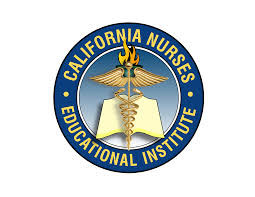
Undergraduate Certificates
- Certified Alcohol and Drug Assistant Counselor
California Southern University
School of Behavioral Sciences
Accreditation: HLC
Online

Undergraduate Certificates
- Certificate in Addiction Studies
Graduate Certificates
- Graduate Certificate in Advanced Addiction Studies
City College of San Francisco
Health and Safety
Accreditation: WASC
Campus
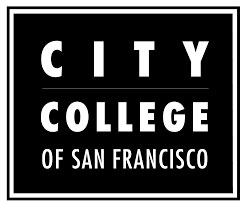
Undergraduate Certificates
- Certificate in Addiction and Recovery Counseling
Associate Degrees
- AS in Addiction Studies
College of San Mateo
Accreditation: WASC
Campus

Undergraduate Certificates
- Certificate of Achievement in Addiction Studies
- Certificate of Specialization in Case Management
- Certificate of Specialization in Co-Occuring Disorders
Associate Degrees
- AA in Addiction Studies
College of the Desert
School of Social Sciences and Art
Accreditation: WASC
Campus

Undergraduate Certificates
- Certificate of Achievement in Alcohol and Drug Studies
Associate Degrees
- AS in Alcohol and Drug Studies
College of the Redwoods
Career Education Division
Accreditation: WASC
Campus

Undergraduate Certificates
- Certificate of Achievement in Addiction Studies
Cosumnes River College
Accreditation: WASC
Campus

Undergraduate Certificates
- Certificate of Achievement in Chemical Dependency Studies
Associate Degrees
- AA in Chemical Dependency Studies
Cuesta College
Social and Behavioral Sciences and Human Services
Accreditation: WASC
Campus

Undergraduate Certificates
- Certificate of Achievement in Addiction Studies Foundation
- Certificate of Achievement in Addiction Treatment Studies
Associate Degrees
- AA in Addiction Treatment Studies
Cypress College
School of Social Sciences
Accreditation: WASC
Campus

Undergraduate Certificates
- Certificate of Achievement in Addiction Studies
Associate Degrees
- AA in Human Services with a specialty area in Alcohol and Drug Studies
Diablo Valley College
Social Sciences Interest Area
Accreditation: WASC
Campus

Undergraduate Certificates
- Certificate of Achievement in Addiction Counseling
- Certificate of Achievement in Addiction Studies
Associate Degrees
- AS in Addiction Counseling, AS in Addiction Studies
East Los Angeles College
Psychology and Addiction Studies Department and Administration of Justice Department
Accreditation: WASC
Campus, Online

Undergraduate Certificates
- Skills Certificate in Addiction Studies Prevention Specialist
- Skills Certificate in Addiction Studies Recovery Specialist
- Addiction Counselor Certificate of Achievement
- Addiction Studies Specialist/Chemical Dependence Specialist) in Criminal Justice Certificate of Achievement (online)
- Substance Abuse Assessor Certificate of Achievement
Fresno City College
Social Sciences Division
Accreditation: WASC
Campus

Undergraduate Certificates
- Certificate of Achievement in Alcoholism and Drug Abuse Counseling option
Associate Degrees
- AS in Human Services with an Alcohol and Drug Abuse Counseling option
Galaxy Medical College
Accreditation: ABHES
Campus

Associate Degrees
- Associate of Occupational Science in Substance Abuse and Addiction Counseling
Glendale Community College
Kumud Parikh Health Sciences Division
Accreditation: WASC
Campus

Undergraduate Certificates
- Certificate in Addiction Studies Counseling
Associate Degrees
- AS in Addiction Studies Counseling
Hartnell College
Social Sciences
Accreditation: WASC
Campus

Undergraduate Certificates
- Certificate of Achievement in Addiction Studies
Associate Degrees
- AA in Addiction Studies
Imperial Valley College
Accreditation: WASC
Campus
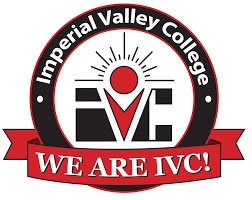
Undergraduate Certificates
- Certificate of Achievement in Addiction Disorder Studies
Associate Degrees
- AS in Addiction Disorder Studies
InterCoast Colleges
Accreditation: ACCET
Campus, Online

Undergraduate Certificates
- Certificate in Alcohol and Drug Counseling Studies
Associate Degrees
- AAS in Substance Use Disorder Counseling
Bachelor's Degrees
- Bachelor’s of Applied Science in Addiction Studies
Lake Tahoe Community College
Accreditation: WASC
Campus
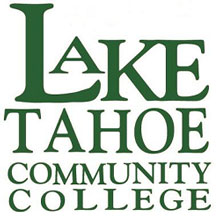
Undergraduate Certificates
- Certificate of Achievement in Addiction Studies
Associate Degrees
- AA in Addiction Studies
Loma Linda University
School of Behavioral Health
Accreditation: WASC
Hybrid

Master's Degrees
- MS in Counseling combined with an MS in Marital and Family Therapy plus a Graduate Certificate in Drug and Alcohol Counseling Certificate
Two master’s degrees plus certificate for a total of 121 quarter credits; option to combine the Graduate Certificate with each individual degree as well
Graduate Certificates
- Graduate Certificate in Drug and Alcohol (online)
Long Beach City College
Allied Health Department
Accreditation: WASC
Campus

Undergraduate Certificates
- Certificate of Achievement in Addiction Studies
Associate Degrees
- AA in Human Services Addiction Studies
Los Angeles City College
Psychology Department
Accreditation: WASC
Campus

Undergraduate Certificates
- Certificate of Achievement in Human Services-Addiction Studies
Associate Degrees
- AA in Human Services-Addiction Studies
Los Angeles Pierce College
Social and Behavioral Sciences Pathway
Accreditation: WASC
Campus

Undergraduate Certificates
- Certificate of Achievement in Addiction studies
Associate Degrees
- AA in Addiction Studies
Los Angeles Southwest College
Behavioral Social Sciences Pathway
Accreditation: WASC
Campus

Undergraduate Certificates
- Certificate of Achievement in Chemical Dependency Counselor Program
- Skill Certificate-Chemical Dependency Specialist in Criminal Justice
Associate Degrees
- AA in Liberal Arts-Psychology of Substance Abuse
Mendocino College
Department of Alcohol and Other Drug Studies
Accreditation: WASC
Campus
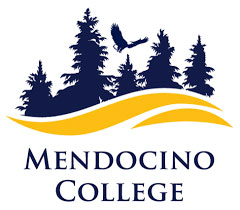
Undergraduate Certificates
- Certificate of Achievement in Alcohol and Other Drugs Studies
Associate Degrees
- AS in Alcohol and Other Drugs Studies
Merritt College
Accreditation: WASC
Campus
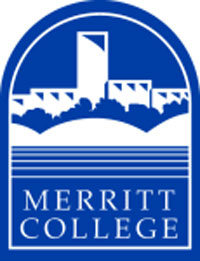
Undergraduate Certificates
- Certificate of Achievement in Community Social Services-Substance Abuse
Associate Degrees
- AA in Community Social Services-Substance Abuse
Modesto Junior College
School of Behavioral and Social Sciences
Accreditation: WASC
Campus

Undergraduate Certificates
- Certificate of Achievement in Chemical Dependency Counseling
Associate Degrees
- AA in Chemical Dependency Counseling
Mt. San Antonio College
Technology and Health Division, Mental Health Department
Accreditation: WASC
Campus

Undergraduate Certificates
- Certificate in Addiction Counseling
Associate Degrees
- AS in Addiction Counseling
Napa Valley College
Health Occupations
Accreditation: WASC
Campus

Undergraduate Certificates
- Certificate of Achievement in Addiction Studies
Associate Degrees
- AS in Addiction Studies
National University
JFK School of Psychology and Social Sciences
Accreditation: WASC
Campus, Online

Undergraduate Certificates
- Undergraduate Certificate in Alcohol and Drug Abuse Counseling
- Post-Baccalaureate Certificate in Systemic Treatment of Addictions
Oxnard College
Public Safety, Health, and Wellness pathway
Accreditation: WASC
Campus

Undergraduate Certificates
- Certificate of Achievement in Addictive Disorders Studies in the Criminal Justice System
- Certificate of Achievement in Addictive Disorders Studies
- Certificate of Achievement in Advanced Skills for Addiction Treatment Counselors
- Certificate of Achievement in Community Behavioral Health Worker
Associate Degrees
- AS in Addictive Studies in the Criminal Justice System
- AS in Addictive Disorders Studies
Palo Verde College
Accreditation: WASC
Campus

Undergraduate Certificates
- Certificate of Achievement in Alcohol and Drug Studies
- Career Preparation Certificate-Alcohol and Drug Studies Specialist I
- Career Preparation Certificate-Alcohol and Drug Studies Specialist II
Palomar College
Social and Behavioral Sciences Division, Behavioral Sciences Department
Accreditation: WASC
Campus

Undergraduate Certificates
- Certificate of Achievement in Alcohol and Other Drug Studies
Associate Degrees
- AS in Alcohol and Other Drug Studies
Rio Hondo College
Behavioral and Social Sciences Area of Interest
Accreditation: WASC
Campus

Undergraduate Certificates
- Certificate of Achievement in Drug Studies
Associate Degrees
- AS in Drug Studies
Saddleback College
School of Health and Wellness
Accreditation: WASC
Campus

Undergraduate Certificates
- Certificate of Achievement in Alcohol and Drug Studies
Associate Degrees
- AS in Alcohol and Drug Studies
San Bernardino Valley College
Division of Social Sciences Human Development Kinesiology and Health, Department of Human Services
Accreditation: WASC
Campus

Undergraduate Certificates
- Certificate of Achievement in Human Studies
San Diego City College
School of Behavioral and Social Science, Consumer and Family Studies
Accreditation: WASC
Campus

Undergraduate Certificates
- Certificate of Achievement in Behavioral Sciences-Alcohol and Other Drug Studies
Associate Degrees
- AS in Behavioral Sciences-Alcohol and Other Drug Studies
San Joaquin Delta College
Psychology
Accreditation: WASC
Campus, Online

Undergraduate Certificates
- Certificate of Achievement Substance Abuse Counselor
San Jose City College
Humanities, Social Sciences, and Arts Division
Accreditation: WASC
Campus
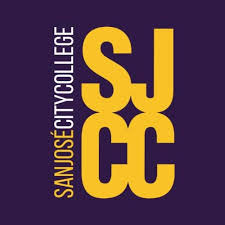
Undergraduate Certificates
- Certificate of Achievement Level 2 in Alcohol and Drug Studies
- Certificate of Achievement Level 3 in Alcohol and Drug Studies
- Certificate of Specialization in Addiction and Criminal Justice
- Certificate of Specialization in Alcohol and Drug Studies Peer Mentor
- Certificate of Specialization in Integrated Behavioral Health
Associate Degrees
- AS in Alcohol and Drug Studies
- AA in Alcohol and Drug Studies
Santa Barbara City College
Addictive Disorders Counseling
Accreditation: WASC
Campus
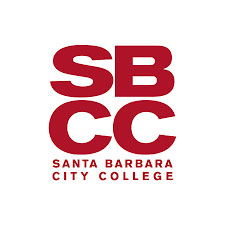
Undergraduate Certificates
- Certificate of Achievement in Addictive Disorders Counseling
Associate Degrees
- AS in Addictive Disorders Counseling
Santa Rosa Junior College
Human Services
Accreditation: WASC
Campus

Undergraduate Certificates
- Certificate of Achievement in Social Work and Human Services-Addiction Studies
Associate Degrees
- AA in Social Work and Human Services-Addiction Studies
Touro University Worldwide
School of Behavioral Health and Applied Sciences
Accreditation: WASC
Online

Master's Degrees
- MA in Counseling-Addiction Counseling specialization
West Los Angeles College
Health Sciences Division
Accreditation: WASC
Campus

Undergraduate Certificates
- Certificate of Achievement in Addiction Studies
Associate Degrees
- AA in Addiction Studies
Western Seminary
Accreditation: WASC
Campus

Master's Degrees
- MA in Counseling with an Addiction Studies Certificate included
Graduate Certificates
- Addiction Studies Certificate (Graduate level)
Woodland Community College
Social Justice and Public Service interest area
Accreditation: WASC
Campus, Online

Undergraduate Certificates
- Certificate of Achievement-Chemical Dependency Counselor
Associate Degrees
- AS-Chemical Dependency Counselor
Yuba College
Health and Medical Careers area of interest
Accreditation: WASC
Campus
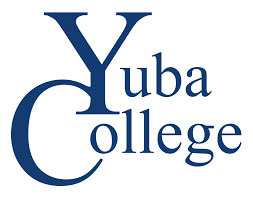
Undergraduate Certificates
- Certificate of Achievement-Chemical Dependency Counselor
Associate Degrees
- AS-Chemical Dependency Counselor
Frequently Asked Questions
How long does it take to become a substance abuse counselor in California?
The timeline varies by your starting point. If you're pursuing the CADTP-II track with an associate degree, you'll need 270 education hours plus 4,000 supervised work hours (typically 1.5-2 years of full-time work). For the CADC-II track with a bachelor's degree or higher, you'll need 315 education hours and 6,000 supervised work hours (typically 2-3 years of full-time work). If you're starting without any college degree, expect 3-4 years total to complete a certificate or associate degree program, plus the required work experience.
Can I become a substance abuse counselor in California without a degree?
Yes. California allows you to pursue the CADTP-I registration, which doesn't require a college degree. You'll need 255 education hours and 4,000 supervised work experience hours. Many counselors start with this entry-level credential and work toward higher certifications as they gain field experience.
What's the difference between CCAPP and CAADAC certification?
CCAPP (California Consortium of Addiction Programs and Professionals) and CAADAC (California Association of Alcoholism and Drug Abuse Counselors) are both approved certifying organizations in California. They offer similar credential levels (CADTP, CADC) with equivalent requirements. The main difference is organizational structure and membership benefits. Employers equally recognize both certifications and meet California's registration requirements.
Do I need to register with the state before I can work?
Yes. California requires all substance use disorder counselors to register with the state through the Department of Health Care Services. You must obtain your SUD Counselor registration before you can practice independently. You can work under supervision while pursuing your education and experience requirements, but formal registration is mandatory before working without oversight.
How much does it cost to get certified in California?
Costs vary by pathway. Community college certificate programs typically cost $1,000-3,000 for in-state students. Education hours through private training providers range from $2,000 to $5,000. Written exam fees are approximately $175- $ 250 per exam (two exams required). Oral exam fees run about $250-350. Application and registration fees total around $300- $ 500. Overall, expect to invest $4,000-9,000 for education, testing, and registration, not including the time spent earning supervised work hours.
Can I get certified online in California?
Yes, California accepts online education hours toward certification requirements. Many community colleges and training providers offer hybrid or fully online alcohol and drug studies programs. However, your supervised work experience hours must be completed in person at an approved treatment facility. Online education combined with in-person clinical work is a common pathway for California counselors.
What jobs can I get with a CADTP certification?
CADTP-certified counselors typically work as substance use disorder counselors, addiction counselors, case managers, intake coordinators, group facilitators, and recovery support specialists. You'll find positions at outpatient treatment centers, residential facilities, hospitals, community health centers, correctional facilities, and nonprofit organizations. CADTP credentials qualify you for entry to mid-level counseling positions, with more senior roles typically requiring CADC certification.
How do I maintain my California counselor registration?
California requires 40 continuing education (CE) hours every two years to maintain your registration. At least 6 hours must cover ethics, and courses must be approved by your certifying organization (CCAPP or CAADAC). You'll also need to renew your DHCS registration and pay the renewal fees. Many counselors earn CE hours through conferences, online courses, workshops, and workplace in-service training.
Key Takeaways
- California requires substance abuse counselors to register as SUDCs through the Department of Health Care Services and obtain certification from CCAPP or CAADAC.
- Multiple pathways exist based on education level, from CADTP-I (no degree required) to CADC-II (bachelor's degree or higher)
- All registrations require education hours (255-315), supervised work experience (4,000-6,000 hours), and passing the written and oral exams.s
- California's 52 community colleges and universities offer affordable certificate and degree programs in alcohol and drug studies
- The median salary for substance abuse counselors in California is $59,590, with top earners in the San Francisco and San Jose areas earning over $80,000 annually.
- Career outlook is strong with 18% job growth projected through 2032, driven by California's ongoing opioid crisis and expanded treatment access.s
Ready to Start Your California Counselor Journey?
Explore accredited degree programs and certificate options to begin your path toward becoming a registered substance abuse counselor in California.
2024 US Bureau of Labor Statistics salary and employment figures for Substance Abuse, Behavioral Disorder, and Mental Health Counselors reflect state and national data, not school-specific information. Conditions in your area may vary. Data accessed November 2025.








